Hanoi metro station plan hits new brakes
Hanoi People’s Committee at the end of April sent a dispatch to the prime minister seeking approval to revise the investment policy of the Nhon-Hanoi Station section of the capital’s metro line.
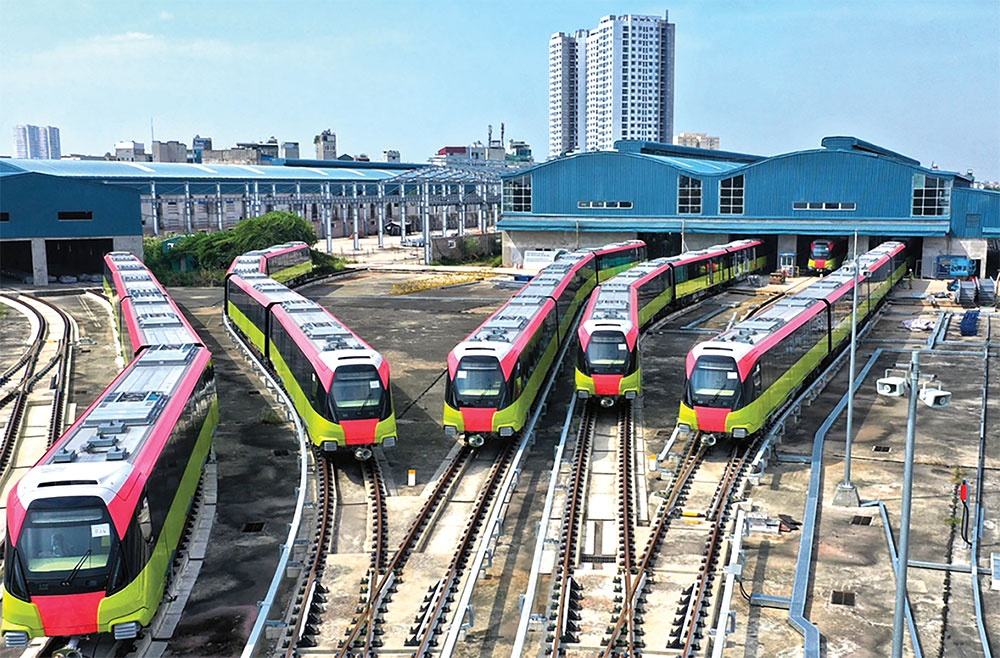 |
| Hanoi metro station plan hits new brakes, illustration photo/ Le Toan |
The proposal was drawn based on a March appraisal report from the Ministry of Planning and Investment (MPI), according to Deputy Chairman of Hanoi People’s Committee Duong Duc Tuan.
The People’s Committee proposed to revise the time for project implementation to 2027, not including a 24-month guarantee period, in which the elevated section is slated to be put into use this year, and the entire project including underground section will become fully operational in 2027.
The Nhon-Hanoi Station reportedly will be running on a separate line with a total length of 12.5km, of which the elevated section will stretch 8.5km and the remainder is underground.
In addition, it asked to scale up total investment to $1.51 billion, up $83.3 million. Almost $170 million will come from the city’s budget, while funding from official development assistance (ODA) will be reduced by $86 million.
Following the move, the revised investment capital structure of the project will consist of ODA loans valued at $1.07 billion and Hanoi’s budget at $436.6 million.
Currently, many bidding contracts for the project cannot be extended as it has yet to fulfill procedures for the revised investment policy approval. In this context, developer Hanoi Metropolitan Railway Management Board is urging relevant contractors to execute their work in order to ensure the elevated section opens by the end of this year.
“Hanoi People’s Committee wants consent for further executing the project, including continued construction, disbursement, and payment to contractors, expediting further negotiations to revise loaning agreements and bidding contracts, and ratifying the revised investment policy to avoid disruption during the implementation process,” said Tuan.
Authorities have acknowledged the limitations in the implementation capacity of the developer and coordination efficiency between foreign consultant unit Systra, the developer, and relevant management departments and sectors.
According to Hanoi People’s Committee, the foreign consultant has yet to fully and efficiently provide the project developer with solutions to deal with rising impediments, particularly helping to clarify the differences between various contracts and current Vietnam’s regulatory system to ensure effective management.
In addition, the single local contractor engaged in the project, Hanoi Construction Corporation, who handles Bidding package CP05 related to depot architectural works, has also continuously caused headaches over its implementation capacity.
The original value of the package was $26.68 million, with the implementation period stretching back to October 2012. After 10 adjustments, the contract value has swollen by an additional $12.1 million.
By April this year, CP05 has only reached 78 per cent of the work volume (mostly construction), six months behind a revised progress date and failing to meet many targets such as handover of electro-mechanical sub-packages or closing a depot low-voltage line, both scheduled for June 2022.
“This came despite the fact that Hanoi People’s Committee and the developer has often given instructions and teamed up with the Ministry of Construction to push up the pace,” said Tuan. “A six-month delay of package CP05 seriously poses a threat to the target of finalising the elevated section and causes additional expenses to the developer.”
Another limitation the MPI noted in its March appraisal report is the poor supervisory and investment assessment activities of the developer. Although an account was opened for Nhon-Hanoi Station project progress reports in the information portal about state capital investment usage, there have been no updates since 2017.
The Nhon-Hanoi Station venture revised its implementation schedule for the first time in 2014, with the completion date extended from 2018 to 2022.
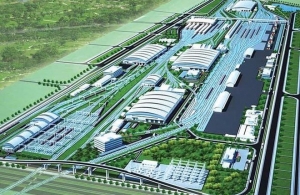 | Hanoi People’s Committee takes over construction of Metro Line 1 Hanoi People’s Committee officially replaces the Ministry of Transport (MoT) in developing Metro Line No.1 from Ngoc Hoi to Yen Vien. |
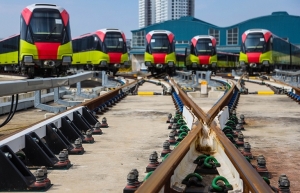 | Long-delayed Nhon-Hanoi Station railway to begin testing The long-delayed $1.3 billion Nhon-Hanoi Station urban railway will start to test operations on December 5 under limited conditions. The test is planned to span six weeks. |
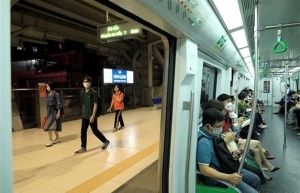 | Hanoi to introduce e-tickets for public transport next year The Hanoi Department of Transport is planning to deploy a unified electronic ticketing system for public bus and metro services in 2024. |
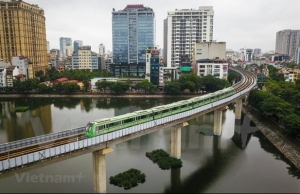 | Cat Linh- Ha Dong metro line serves more than 2.65 mln passengers in Q1 The Cat Linh – Ha Dong metro line served more than 2.65 million passengers in the first quarter of this year, skyrocketing 262% year-on-year, according to General Director of Hanoi Railway Company Limited (Hanoi Metro) Vu Hong Truong. |
What the stars mean:
★ Poor ★ ★ Promising ★★★ Good ★★★★ Very good ★★★★★ Exceptional
Related Contents
Latest News
More News
- Hermes joins Long Thanh cargo terminal development (February 04, 2026 | 15:59)
- SCG enhances production and distribution in Vietnam (February 04, 2026 | 08:00)
- UNIVACCO strengthens Asia expansion with Vietnam facility (February 03, 2026 | 08:00)
- Cai Mep Ha Port project wins approval with $1.95bn investment (February 02, 2026 | 16:17)
- Repositioning Vietnam in Asia’s manufacturing race (February 02, 2026 | 16:00)
- Manufacturing growth remains solid in early 2026 (February 02, 2026 | 15:28)
- Navigating venture capital trends across the continent (February 02, 2026 | 14:00)
- Motivations to achieve high growth (February 02, 2026 | 11:00)
- Capacity and regulations among British areas of expertise in IFCs (February 02, 2026 | 09:09)
- Transition underway in German investment across Vietnam (February 02, 2026 | 08:00)

 Tag:
Tag:




















 Mobile Version
Mobile Version